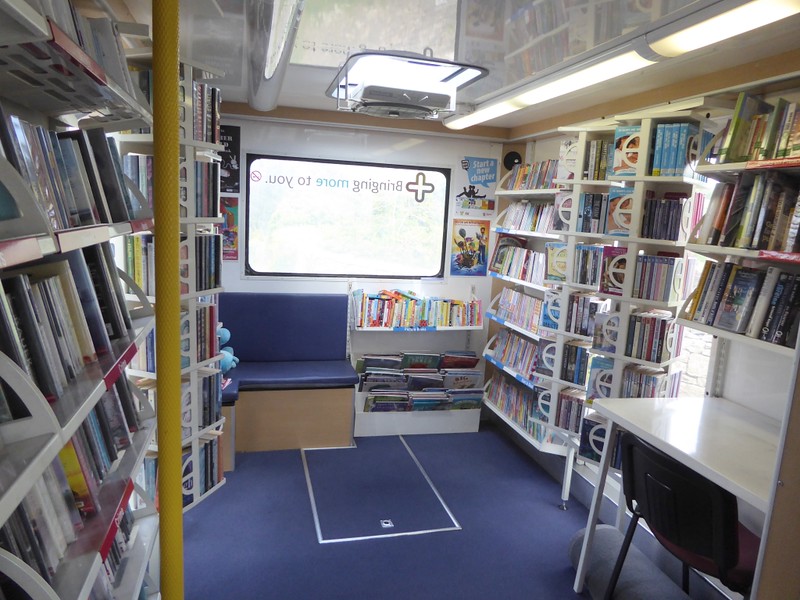Mobile Libraries in Afghanistan Are Empowering Youth
 Mobile libraries in Afghanistan are making waves in a nation where education, particularly for women and children, has faced numerous challenges. These traveling libraries are not only fostering a culture of reading but also empowering the youth by broadening their horizons, especially in the context of the recent political changes.
Mobile libraries in Afghanistan are making waves in a nation where education, particularly for women and children, has faced numerous challenges. These traveling libraries are not only fostering a culture of reading but also empowering the youth by broadening their horizons, especially in the context of the recent political changes.
The Plight of Education in Afghanistan
Afghanistan’s educational infrastructure has faced considerable challenges over the past few decades. War, political unrest and cultural norms have limited access to quality education for many, especially girls. According to UNICEF, by 2018, around 3.7 million children were out of school in Afghanistan, with girls making up 60% of this figure due to factors like traditional norms and the Taliban takeover affecting girls’ education.
The Taliban Takeover and Its Impact on Education
The Taliban’s takeover in Afghanistan in August 2021 has had a significant impact on education, especially for girls. Following the takeover, the Taliban implemented several restrictions, including barring girls from attending school beyond the sixth grade. This move, among other restrictive measures, targeted the education and employment opportunities for women and girls in Afghanistan.
According to UNESCO, more than 2.5 million, nearly 80% of school-aged Afghan girls and young women, have been out of school since 2021. The Taliban’s restriction tightened in 2022, barring girls from attending secondary school and university, making Afghanistan one of the most restrictive countries globally concerning women’s education.
Charmaghz, a Kabul-based non-profit organization, has provided educational resources to children amid these challenging circumstances. The organization repurposes old public buses into mobile libraries, offering a space for children to read, think and ask questions. Although they had to halt operations temporarily due to the Taliban’s takeover, the dire need for educational support for children propelled them to continue their mission.
Charmaghz: Wheels of Knowledge Amidst Adversity
The Charmaghz Mobile Library was launched in 2018 in Kabul, Afghanistan, by Freshta Karim. The name “Charmaghz” is derived from Farsi, where “chahar” means four and “maghz” means brain. This reflects the foundation’s philosophy of work, which is to create opportunities for critical thinking.
With the mission to provide spaces for critical thinking and children’s imagination in areas heavily affected by conflict, they offer mobile library services across Kabul and have various activities to encourage children to express themselves. Each mobile library is stocked with about 400 books in Dari, Pashto and English, covering topics ranging from science to history and has five active mobile libraries in Kabul, namely Khairkhana, Karte Naw, West Kabul, Khoshalkhan and Baghe Bala with about 1,000 visitors per day.
Three of the five libraries under the Charmaghz initiative received funding throughout 2021 with support from the Afghan private sector, indicating local support for such initiatives.
Positive Impacts of Mobile Libraries in Afghanistan
These mobile libraries are doing more than just spreading the joy of reading. They’re creating safe spaces where children, especially girls, can gather, share ideas and cultivate a love for learning. Regular reading sessions, storytelling events and discussions are organized, fostering a sense of community and shared learning.
By providing access to books and creating spaces for learning, mobile libraries contribute to bridging the educational gap in regions where regular schooling might be inaccessible or inadequate. The outreach to schools, parks, orphanages and communities, coupled with providing a wide range of books, extends educational resources to those who might otherwise have limited access.
The Road Ahead
The success of initiatives like Charmaghz is a testament to the resilience and determination of the Afghan people. There are efforts to promote reading among children, such as creating community libraries in Internally Displaced Persons (IDP) camps in Kabul in 2021.
The Afghan government, with support from international NGOs, is recognizing the potential of these mobile libraries and is considering plans to support and expand these programs. The hope is that, soon, mobile libraries will not just be limited to Kabul but will be found across the country, bringing education and hope to every corner of Afghanistan.
The work of organizations like Charmaghz is a beacon of hope amidst the bleak educational landscape for girls in Afghanistan. Highlighting the operations of such organizations helps to ensure that the international community does not overlook the plight of girls and women in Afghanistan amidst other unfolding global crises.
– Laeticia Mbangue
Photo: Flickr
